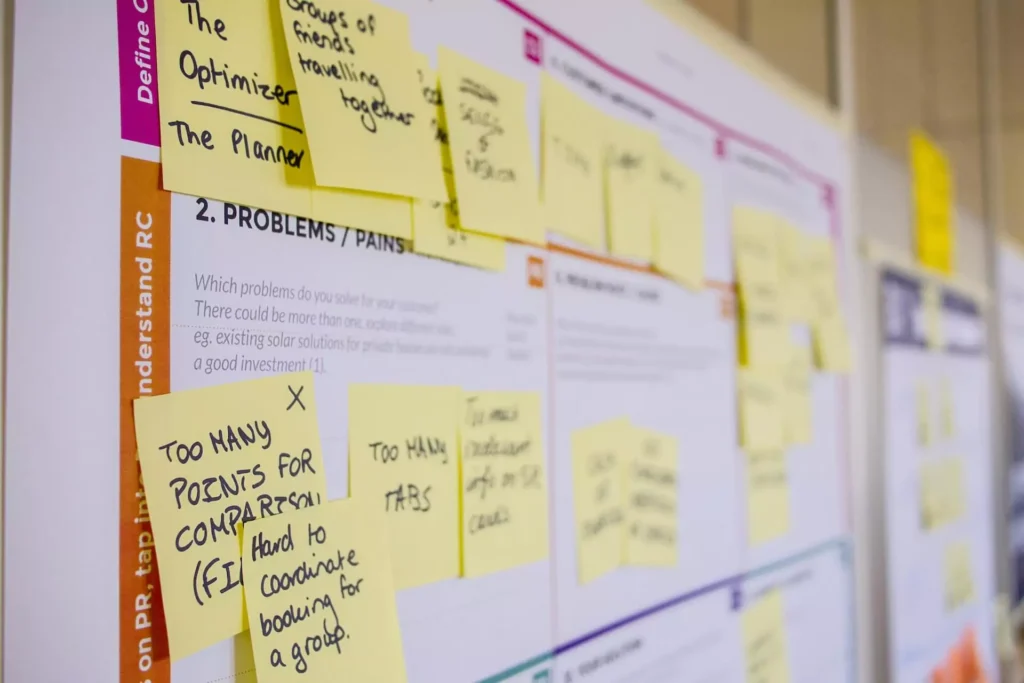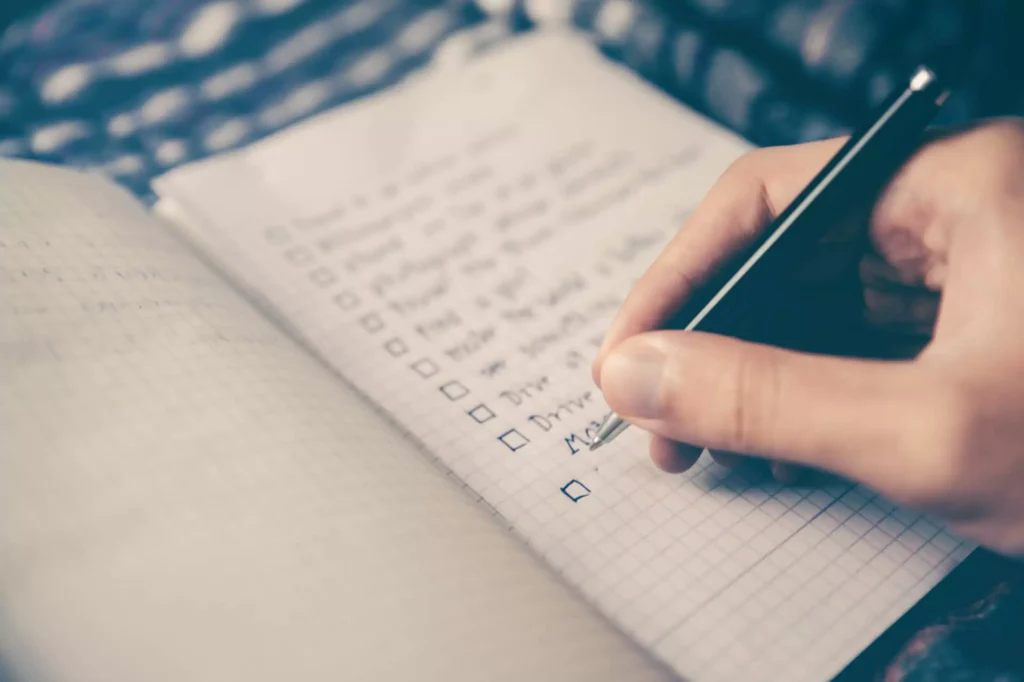Retaining the knowledge that is learned is one of the most essential yet challenging parts of being a successful student. While it is possible to understand concepts during lectures or while studying, true mastery comes from how well that information can be retained in memory over extended periods. Unfortunately, statistics show that students regularly need to remember a large percentage of what they learned within days or weeks after initial exposure if ineffective study practices are used. With demanding course loads and competing priorities pulling at their time, students need powerful yet efficient study techniques to help maximize how much they can retain and recall.
This article will explore 6 highly effective study techniques shown through educational research to boost students’ ability to control learned knowledge significantly. A brief overview of each study technique will be provided, along with specific tips on implementing them into a regular study routine.
The first study technique is using flashcards, which take advantage of the powerful cognitive phenomenon known as spaced repetition. By revisiting information at increasing intervals, flashcards can strengthen memory traces and solidify knowledge in the brain’s long-term storage. The second study technique is teaching or explaining topics to others, such as peers or family members. Preparing to teach helps students better organize their understanding while verbally explaining concepts further cements their knowledge through additional processing. The third study technique is summarization, whether through traditional outlines, concept maps, or written summaries. Condensing large amounts of information into concise summaries requires deep analysis and selective inclusion of only the most salient points, improving retention.
Self-quizzing through active recall is the fourth powerful study technique. By retrieving information from memory without relying on cues such as notes or texts, quizzing obliges students to access the knowledge they’ve accumulated, strengthening the pathways connecting that knowledge. The fifth study technique is spacing out study sessions over time rather than marathon “cramming,” allowing previous information to be continuously reviewed and consolidated into durable long-term learning. Sixth, mind maps provide a graphical approach to organizing and representing relationships between concepts in a radiating, image-enhanced structure that taps the brain’s visual areas.
Finally, finding real-world applications or connections between topics aids retention by situating knowledge in a meaningful, relevant context.
Through active and consistent implementation of these 6 study techniques, students will be well-equipped to retain significantly more of what they learn from their course materials and assignments. While retaining knowledge is challenging, deploying proven methods like these can give students a powerful skill set for academic success throughout their careers and beyond. The following sections will explore each strategy in further depth.
Table of Contents
1. Flashcards Study Technique

One of the simplest but most powerful ways to study is with flashcards. Flashcards are genius because they take advantage of spaced repetition, just reviewing stuff over time so it sticks better in your brain. Each time you pull out those flashcards, your memory of the material strengthens like a muscle. You can use flashcards to space out, reviewing whatever facts, terms, dates – whatever you need to remember from your classes.
To make good flashcards, keep them simple but with just the right amount of details. Write a question or term; on the other, put the answer – things like definitions, explanations, names, dates, etc. You can write them by hand on blank index cards or use a flashcard app on your phone or computer. Some tips – use different colours for different classes. Hence, it’s easy to sort them, break big ideas into multiple smaller cards instead of cramming too much on one and include pictures, diagrams, examples, and whatever helps the material make sense.
Once you’ve made your stack of flashcards, scheduling time to review them regularly is essential. Going over 10-15 new ones daily is manageable and makes a big difference. Apps can space out your reviews automatically over time as you practice. When you review, flip the card over and try recalling the answer out loud before checking. Cards you got right go in one pile, and the wrong ones in another to review again.
Mnemonic devices like acronyms or relating the material to your life through memories and pictures can boost how much sticks. Quizzing friends with your cards is also an excellent way to study twice. Just stick with it consistently, and those flashcards will help lock in what you’re learning.
2. Teaching Others

On the other hand, one of the best ways to boost how much you remember from your courses is to take the time to teach the material to others, like your classmates or friends in the same classes. Hear me out – teaching content is way more effective for your learning than just listening to lectures or studying alone. When you have to break down info to teach someone else, it forces you to understand things deeper.
You must analyze the key points taught, clearly connect all the ideas, and simplify complex topics into terms another person can follow. Preparing to teach something is like a mental workout – it strengthens your comprehension and memory much more than passively reading or re-writing notes. Plus, putting ideas into your own words to teach helps cement them better in your brain. Studying with partners and taking turns teaching short topic summaries to each other is a super efficient use of time that will seriously boost your grades.
Another significant benefit is that just getting ready to be the teacher will strengthen your grasp of the material even before you start the lesson. Knowing you’ll soon need to explain complicated concepts or work through practice problems for someone else makes you pay closer attention while studying. You’ll focus more on genuinely understanding versus skimming to get through reading piles, and this teaches self-regulated learning skills like testing yourself with practice quiz questions you create to check your ability to define topics clearly.
There’s nothing more embarrassing than awkwardly feeling through teaching your friend while you can see the blank confusion on their face. Knowing you need to teach something motivates you to fill in any gaps in your knowledge before the lesson. Trying to teach what you’re unclear about yourself is the fastest way to realize what you still need more practice with. Working through misconceptions with peers also provides a safe space to address misunderstandings before a more significant exam.
Plus, it’s way more engaging than just rereading textbook pages or doing flashcards alone. Taking turns meeting up weekly to teach mini-tutorials about the course material motivates you to stick to your study schedule. Forming these partnerships where you quiz each other builds stronger relationships as you work through the same challenging courses together. Learning is a hugely social process, so sharing knowledge through explanations boosts retention both for the teacher and student. Peer teaching strategies are some of the most powerful yet underused – I guarantee incorporating them will raise your grades.
Making time to teach classmates or friends regularly will cement your understanding. Prepping mini-lessons only takes 30 minutes, which is way less time than cramming right before a test—the deeper processing required to teach forces clearer comprehension than passive reading alone. Give peer teaching a try – you’ll be amazed by how much more you retain.
3. Summarization Study Technique

Summarizing is another beneficial strategy for improving how much you retain from your readings and lectures. When you take the time to condense large amounts of material down into concise summaries, it requires you to deeply analyze what’s being covered to decide what the key takeaways are. This level of processing is way more effective for cementing information in your long-term memory than passive studying alone.
You can use a few summarising study techniques like traditional outlines, concept maps, or written summaries. Outlining frameworks like IRAC (Issue, Rule, Analysis, Conclusion) force you to logically structure legal case details in a way that shows relationships between concepts. For science topics, mapping processes, cycles or hierarchies of classification with branches and connections between ideas assists retention. However you do it, these visual organizers of main points strengthen comprehension and memory compared to disorganized linear notes.
Some valuable tips for writing good summaries include focusing only on the most important themes, events, people or theories rather than trivial details. Use your words as much as possible rather than copying directly from sources. Ensure your summary flows cohesively in logical paragraphs rather than a bulleted list. Check that it captures the essence and spirit of the original content without being a replica or word-for-word. Summarizing significant chapters into just one or two concise paragraphs is great practice for distilling major lessons.
Also, test yourself to re-summarize what you wrote from memory after putting it aside. This double exposure to information strengthens retention more than passive reading alone. Of course, cite sources properly if these summaries are formal assignments rather than private study tools. Overall, though, regular summarization rewards you with a strengthened understanding of core concepts rather than surface-level familiarity with insignificant facts.
Whether as outlines, concept maps or written paragraphs, developing the ability to synthesize key ideas effectively through summarizing is a vital skill that will serve you well in higher-level coursework and future careers. The deeper engagement demanded aids retention far beyond highlighting and rereading alone. I’d recommend picking a helpful study technique and incorporating summarizing into your regular studies to reap the benefits of memory.
4. Active Recall

One really powerful retention study technique is regular self-quizzing through active recall. Active recall means retrieving information from memory without relying on cues like notes or textbook pages. When you quiz yourself, it forces you to actively access what you’ve learned instead of just passively rereading or re-writing it. This process of retrieval is actually what locks knowledge into your long-term memory way more than rereading alone.
Some great active recall study techniques include making practice questions and answers to test your classmates, using flashcards to cover the answers, verbally stating what you remember, or trying to concept map topics from scratch without sources to check against. Apps like Anthropic make studying fun by turning topics into puzzles and memory games you play against an AI. Retrieving facts and details without aids strengthens how easily you’ll recall them later, like on exams.
Regular self-testing has amazing benefits for retention over the short and long term compared to just reading material over and over. Research shows we remember about 80% of information immediately after a practice quiz but only 20% from rereading alone! This is why spacing out quizzing yourself over time, like weekly for a semester-long class, leads to the strongest durable learning versus cramming. It’s also way more engaging and feels less tedious than boring flashcards or pages of notes.
Regular self-testing reveals what you still have trouble recalling so you know what needs more focus. Be bold and get answers right – view mistakes as feedback to target weaker areas until they become automatic. Low-stakes quizzing of yourself or friends provides a safe space to build strengths and shore up weaknesses versus high-pressure exam situations. Fun fact: students who tested themselves weekly during a course retained knowledge better even a year later than those who just restudied!
Active recall strategies are simple to incorporate and give impressive retention benefits for little time invested. You’ll be amazed how frequently self-quizzing content cements it durably in your memory. Try it out regularly as one of your study techniques.
Check this also: BEST 6+ TIPS TO STUDY WELL BY READING
5. Spaced Practice

Spaced practice is also one of the best study techniques that’ll boost how much you remember by spacing out your practice over time instead of cramming everything right before a test. It’s called spaced practice, which takes advantage of how our brains work best. Cramming the night before might get you through the exam, but you’ll need to remember most of it. Fast-spaced practice locks it in there way better in the long run.
The key is revisiting what you’re learning at increasing intervals. Hence, it feels fresher each time, like doing flashcard reviews every other day or quizzing your friends on a topic once a week, and this gives your brain multiple chances to rebuild those memories even more vital. Studies show we retain almost twice as much using spaced practice versus marathon studying.
It’s easy to incorporate, too. Schedule short daily flashcard sessions or problem sets. Apps like Anki and Anthropic can automatically space things out for you as your skills improve. For full-semester classes, aim to do mini-topic reviews or teach your friends each week so everything runs smoothly.
You can space out activities like flashcards, self-quizzes, practice essays or problems. Even explaining stuff to yourself or others without notes over time strengthens memory. Spaced practice sessions targeting your weaker areas are way better than last-minute panicking. Scores might rise slower than cramming, but spaced practice pays off with more durable understanding and better retention, even a full year later! Give it a shot – you’ll be amazed by the difference it makes.
6. Mind Maps

Mind maps are an excellent visual way to organize your learning. With a mind map, you draw a central topic in the centre and branch out related ideas, vocabulary words, etc., around it in a tree branch-like structure, and this taps into how our brains naturally form associations and think visually better than linear notes or outlines.
Mind maps boost retention because they show connections at a glance. Your brain not only remembers individual items better in context, but it also absorbs relationships between broader concepts. They also activate more areas of your brain related to visual thinking, creative expression and emotional attachment to ideas. Studies show visual learners retain up to 80% more with mind maps versus other study technique!
Some tips for effective mind maps – start with a topic at the centre and different colours for the main branches. Use images, icons and symbols where possible. Write in a relaxed, creative way instead of a tight linear formation. Leave spaces to add to later as understanding grows. Refer back to mind maps often to solidify your knowledge of how ideas link. Apps like MindMeister make collaborating with friends on group maps easy, too.
Mind maps strengthen comprehension by making abstract ideas concrete in a visual-spatial context. The key is using them as a study tool throughout the learning process rather than just for recalling disconnected facts. Give mind mapping a try – you’ll be shocked by how much deeper you start to understand material in a fun, creative way!
Conclusion
Alright, guys, we just covered 6 highly effective study techniques proven through scientific research to boost how much you retain seriously: flashcards, teaching others, summarizing, active recall quizzing, spaced practice, mind maps, and finding real-world connections. Try incorporating some of these into your routine, no matter what your learning style is.
The best part is you can easily combine several study techniques for even more substantial memory benefits. For example, create flashcards with questions on one side to help self-quiz with active recall. Or use mind maps to plan out summaries you teach to your friends. Quiz each other with flashcards using spaced intervals set by an app. Whatever works for your schedule and subjects.
Consistency is vital, though. Don’t just try these study techniques once before a test and expect magic results – you have to stick with regular practice over weeks and months to get that durable long-term understanding. Even 30 minutes a few times a week of one or two study techniques will add up. Apps like Anthropic make it engaging and almost fun by turning study activities into interactive games and challenges.
Motivation is another factor – knowing you’ll now have to teach your friend flashcards or problem sets is a great incentive to stay on track with weekly reviews versus procrastinating. Forming online study groups via video chat to teach topics is motivating, too, as you work together towards exams.
Overall, committing to at least 3-4 of these retention-boosting methods consistently every study session will raise your grades by strengthening initial learning and long-lasting comprehension and memory. Don’t just focus on managing short-term test/assignment stress – build skills for knowledge that lasts through your academic career and beyond.
In summary, try some study techniques for the rest of the semester: spaced practice with flashcards or self-quizzes, taking study partner turns explaining topics, incorporating mind maps for visual connections, scheduling weekly self-testing or teaching brief reviews. Track your progress, and you’ll be shocked by how much easier tests become as less studying gets you better results. Studying smarter through implementing retention tactics that work is the key to success. You’ve got this – just stick with actively applying study techniques and watch your mastery grow.
